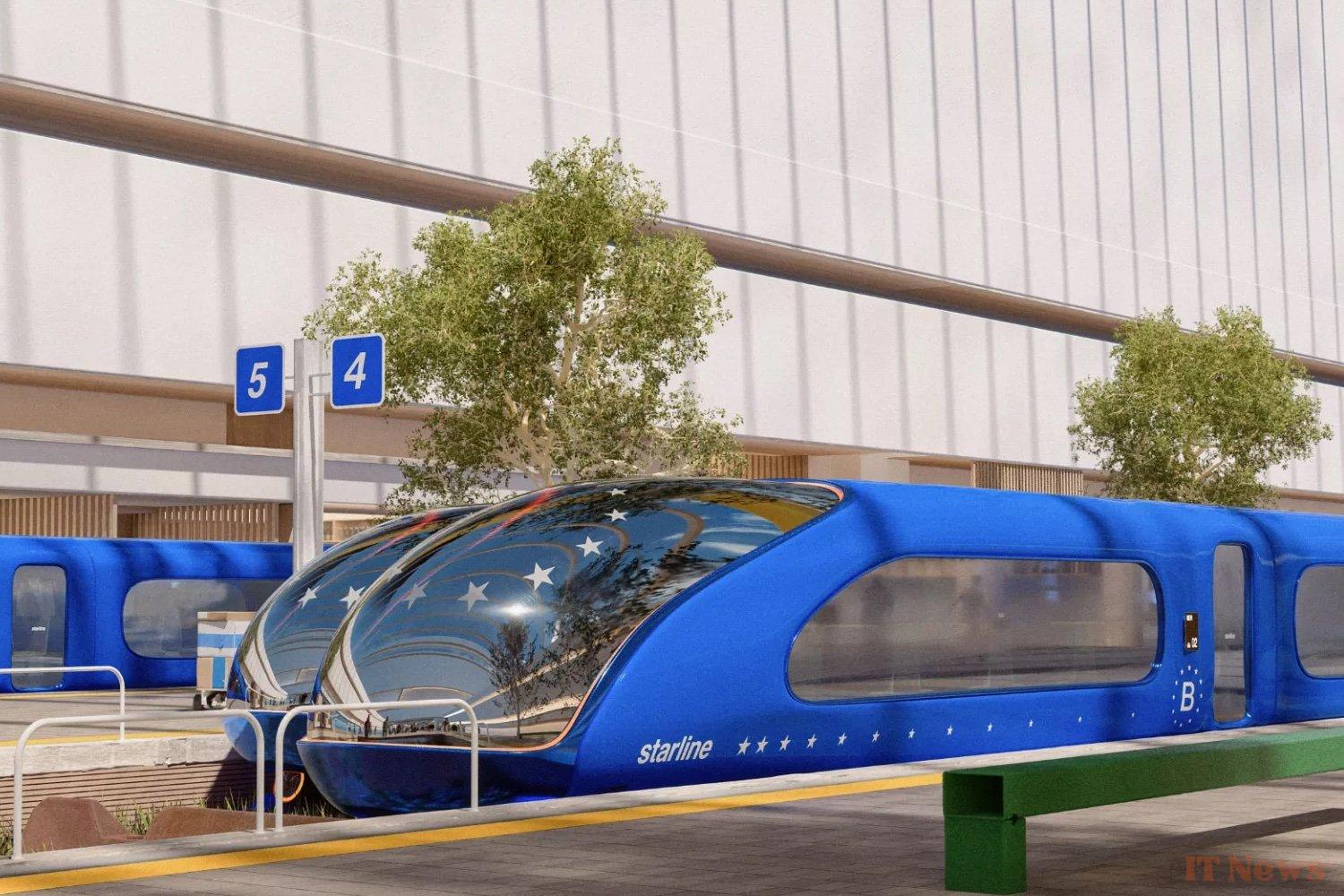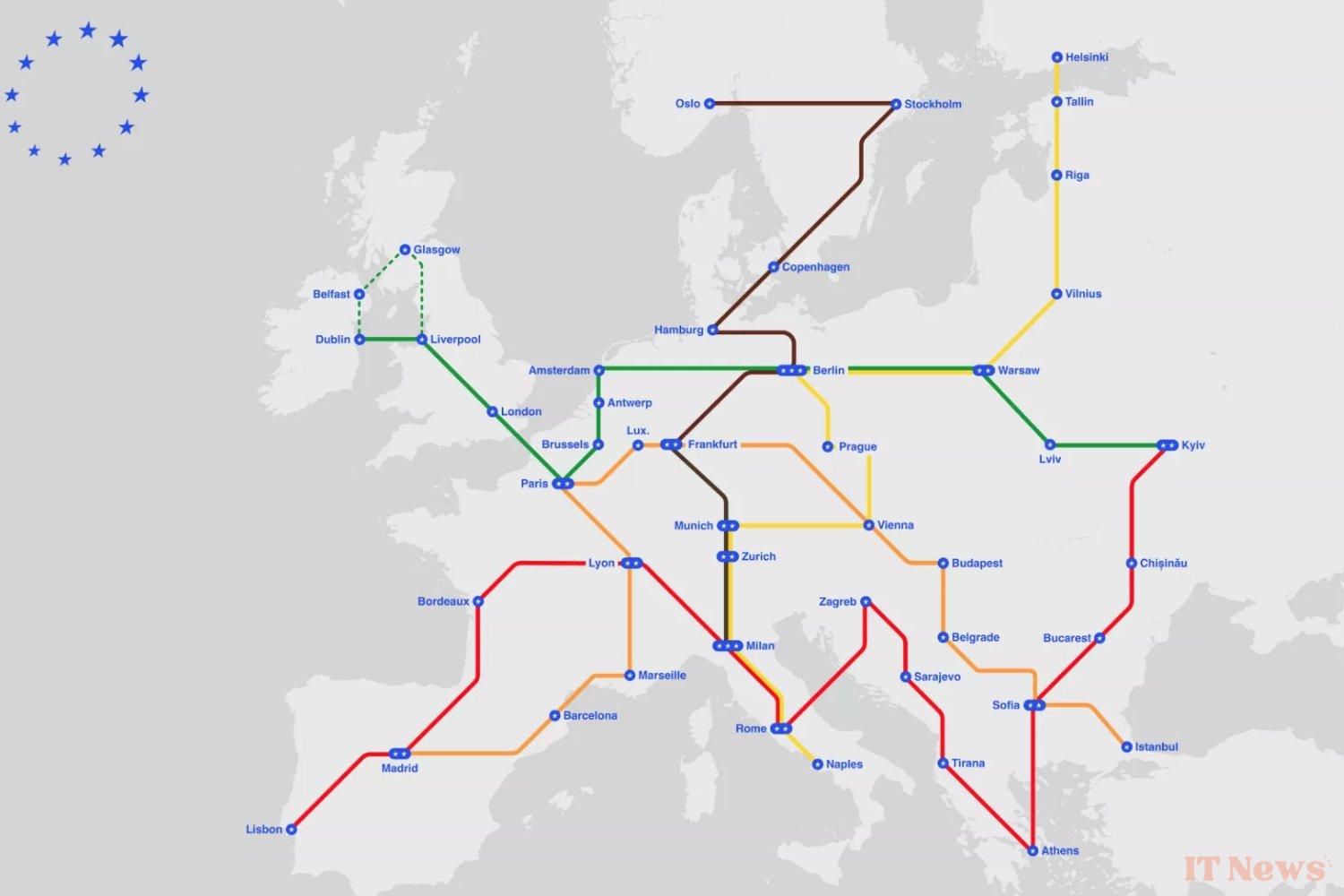For years, train lines have been multiplying to facilitate cross-border travel in Europe. But according to "21st Europe," these efforts remain too scattered. The group, founded by the former co-director of Space10, Ikea's creative lab, offers a radically different approach with Starline: an integrated network, designed like a continental subway.
A network to forget borders
The concept is clear: "Europeans must no longer see their continent as a mosaic of distant capitals, but as a fluid network where every connection is quickly accessible," explains the Copenhagen-based organization. Starline trains aim for speeds between 300 and 400 km/h, promising, for example, to connect Helsinki to Berlin in just over five hours — compared to one day today.
The network would cover 22,000 km, with 39 destinations served, including non-EU capitals such as Kyiv, Istanbul and London. More than just a transport project, Starline is one of the possible answers to the environmental and social problems of the old continent.
The project aims to eliminate the shortcomings of the current rail network: complicated tickets booking, inconsistent trains from one country to another, aging stations... Starline is banking on a strong, unified and visually appealing experience: harmonized design, instantly recognizable deep blue livery, and cars redesigned according to needs - silence for work, spaces for families or leisure.
Stations will no longer be simple transit points. Built on the outskirts of major cities and connected to urban networks, they will house restaurants, museums, and even concert halls. A way of strengthening their role as living spaces.
As for Under the governance framework, Starline would be publicly financed and managed by national operators, under the coordination of a new European Railway Authority (ERA). The objective is to ensure technical, regulatory, and human consistency across the entire network. Staff would thus be trained according to a common framework across the continent.
"21st Europe" makes no secret of the ecological ambition of its project. While the transport sector represented nearly 30% of the EU's greenhouse gas emissions in 2022, Starline aims to offer a credible alternative to by plane, especially over short distances.
Countries like France and Austria have already banned certain domestic flights when a train alternative exists. But "a real impact requires a continental approach," insists the think tank. For its designers, Starline is also a geopolitical tool: by strengthening connections between countries, including those in the East, it helps to "secure trade, support commerce, and strengthen cultural ties between peoples."
Launched as a call to decision-makers, the project has nothing official yet. But its initiators hope to make it a reality by the end of the century. "This is the right time to rethink the way we move and create a fast, sustainable, and inspiring network," they conclude.




0 Comments